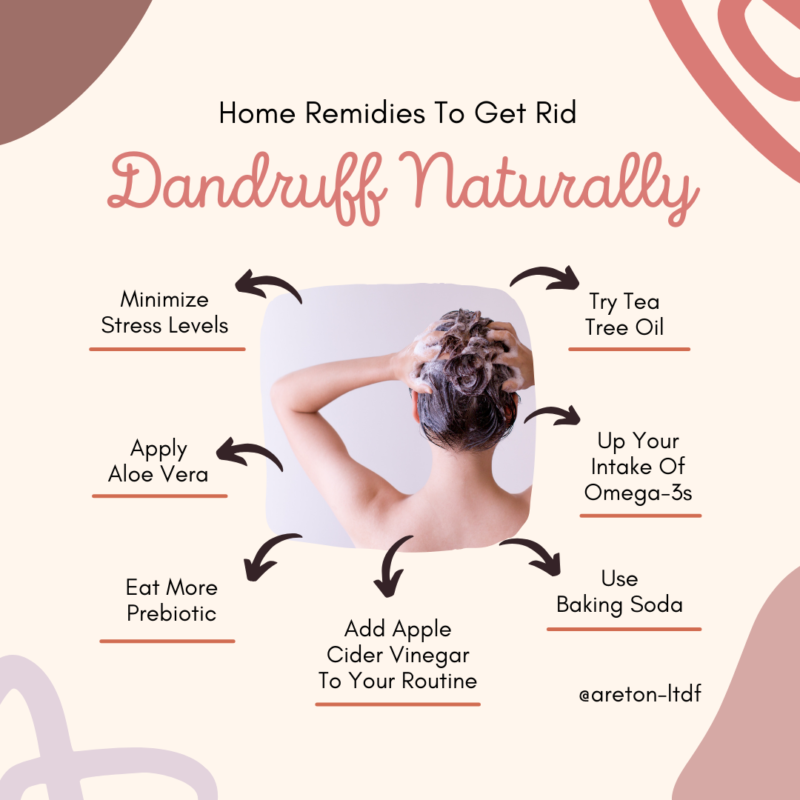What is Dandruff?
Dandruff is a common skin condition that causes white, flaky skin to appear on the scalp. It is not contagious or serious, but can be annoying and embarrassing for those who have it.
Dandruff is caused by the rapid growth and die off of skin cells on the scalp. Normally, dead skin cells fall off the scalp gradually and are not visible. With dandruff, the turnover of skin cells accelerates, causing visible flakes of dead skin to appear.
Dandruff is not the same as dry scalp. With dry scalp, the skin may feel itchy and appear flaky due to lack of moisture. Dandruff, on the other hand, is caused by excessive oiliness and the rapid turnover of skin cells. The flakes are larger and may be yellowish in dandruff.
The key differences:
Dandruff causes visible, larger flakes. Dry scalp leads to smaller flakes that may not be as noticeable.
Dandruff flakes can be oily and yellowish. Dry scalp flakes are dry and white.
Dandruff is caused by too rapid cell turnover. Dry scalp is caused by lack of moisture and irritation.
Dandruff usually responds to antifungal treatment. Dry scalp is treated by moisturizing the scalp.
So in summary, dandruff is a condition of its own, while dry scalp refers to flaky skin due to lack of moisture. Proper diagnosis is needed to determine the right treatment.
Causes of Dandruff
Dandruff can have several underlying causes:
Oily skin – Excess oil production can cause faster turnover and shedding of skin cells. The rapid buildup of dead skin cells leads to dandruff flakes.
Yeast – A yeast called Malassezia lives on everyone’s scalp. For some people, it grows out of control, irritating the scalp and causing more skin cell turnover. This leads to dandruff flakes.
Dry skin – Dry, flaky skin is more prone to dandruff. Cold dry weather, over-shampooing, and certain skin conditions like eczema can cause dry scalp. The dead skin builds up into dandruff.
Skin conditions – Skin conditions like seborrheic dermatitis, psoriasis, and eczema cause inflammation and irritation on the scalp. This accelerates skin cell turnover, leading to dandruff.
Symptoms of Dandruff
Dandruff can cause several symptoms that range from mild to severe. The most common symptoms include:
Flaky Scalp: Excess skin shedding on the scalp is the hallmark symptom of dandruff. The flakes are often visible on the hair and shoulders. The severity can range from mild with a few flakes to very severe with heavy, thick scaling.
Itchiness: An itchy, irritated scalp is another classic symptom of dandruff. The itchiness is caused by inflammation from the fungal infection and excess skin shedding. For some, the itch can be severe and unrelenting.
Redness: Red, inflamed patches may appear on the scalp in areas with dandruff. This is caused by irritation from the fungus, scratching, and inflammation. The degree of redness correlates with the severity of the dandruff. Mild cases have minimal redness while severe cases can have prominent, bright red areas.
The combination of flaking, itching and redness is characteristic of dandruff affected scalps. The symptoms tend to fluctuate in severity, with flare ups followed by periods of improvement. Without proper treatment, symptoms often persist and gradually worsen over time.
Risk Factors for Dandruff
Certain factors can increase your risk of developing dandruff. Some of the main risk factors include:
Age – Dandruff can occur at any age, but it’s most common in teens and adults between 30-50 years old. The sebaceous glands reach peak activity during puberty, making teens prone to dandruff. As we age, sebum production slows down which can lead to dry, flaky skin.
Gender – Men are more likely to get dandruff than women. This is because male hormones like testosterone stimulate the sebaceous glands, causing them to produce more oil. The excess oil triggers faster skin cell turnover and irritation.
Stress – Stress and anxiety can worsen dandruff symptoms. Stress impacts the immune system and leads to inflammation, which can cause flaking. High stress levels also disrupt normal oil production, leading to irritated and dry skin prone to flaking.
Seasons – Dandruff flare-ups are more common in fall and winter when the air is cold and dry. The lack of moisture in the air during these seasons can dry out the scalp, causing flaky skin and itchiness. Dandruff may improve during spring and summer when humidity levels are higher.

Complications of Dandruff
Dandruff can lead to some complications if left untreated. The most common issues that can arise include:
Social Embarrassment
For many people, dandruff can cause significant social anxiety and embarrassment. The visible flakes that fall from the scalp are noticeable to others and can be mistaken for poor hygiene. This can make people reluctant to wear dark clothing, avoid close contact with others, and shy away from social situations. The emotional toll of feeling self-conscious can negatively impact self-esteem and confidence.
Scalp Infections
Scratching the scalp excessively due to itchiness can cause cuts and abrasions on the skin. This makes the scalp more prone to bacterial and fungal infections. Open wounds provide an entry point for microbes that can lead to further irritation, inflammation, and potential hair loss. Infections such as folliculitis and seborrheic dermatitis are common with severe dandruff if the underlying cause is not treated. Keeping the scalp clean and avoiding excessive scratching is important to prevent infections.
Diagnosing Dandruff
Dandruff can often be diagnosed simply by examining the scalp. A dermatologist or other doctor will look for the following signs:
- Flaky, dry skin on the scalp
- Red, greasy patches of skin
- Small white flakes of dead skin in the hair and on the shoulders
They may also gently scrape off some of the flaky skin from the scalp and examine it under a microscope. This is called a skin sample or scalp biopsy. This can help rule out other skin conditions like seborrheic dermatitis, psoriasis, or eczema.
A skin sample allows the doctor to see the fungus Malassezia furfur up close. An overgrowth of this yeast-like fungus is the primary cause of dandruff. The skin sample can also check for inflammation and increased cell turnover.
With a simple physical exam and sometimes a skin sample, a doctor can easily diagnose dandruff and rule out other conditions. This helps ensure the right treatments can be prescribed.
Treatments for Dandruff
There are several treatment options available for dandruff, ranging from over-the-counter shampoos to prescription strength options.
Over-the-Counter (OTC) Shampoos
Many OTC shampoos contain active ingredients that can help treat dandruff by reducing yeast and inflammation on the scalp. Some common OTC active ingredients include:
Pyrithione zinc – This has anti-fungal and anti-yeast properties. Popular brands contain zinc pyrithione include Head & Shoulders, Jason Dandruff Relief, and Nizoral A-D.
Selenium sulfide – This slows down the growth of Malassezia yeast. Selsun Blue contains selenium sulfide.
Ketoconazole – This is a broad-spectrum antifungal medication that also has anti-inflammatory effects. Nizoral contains ketoconazole.
Coal tar – Derived from coal, this ingredient helps slow down excessive cell growth and reduce scaling. Neutrogena T/Gel contains coal tar.
These shampoos need to be used regularly (2-3 times per week) to keep dandruff under control. It may take several weeks of use to see improvement.
Prescription Shampoos
For more stubborn cases of dandruff, doctors may prescribe a shampoo containing a stronger dose of an active ingredient like ketoconazole.
One example is Nizoral A-D, which contains 2% ketoconazole (higher than the 1% found in over-the-counter formulas). Using it twice a week can help reduce scaling and itching.
Natural Remedies
Some people prefer to use natural remedies to treat their dandruff. While clinical evidence is limited, some natural ingredients may help by reducing yeast, inflammation, or irritation on the scalp.
Potential natural remedies to try include:
Tea tree oil – Has anti-fungal and anti-inflammatory properties. Can be diluted and applied directly to the scalp.
Coconut oil – Moisturizes the skin to reduce flaking and scaling. Apply a small amount to the scalp before showering.
Apple cider vinegar – Contains acids that lower scalp pH to inhibit fungal growth. Can be diluted and used as a rinse.
Aloe vera – Soothes inflammation and irritation. Apply pure aloe gel to the scalp and rinse.
Dietary changes – Some find reducing sugar, dairy, and yeast improves dandruff.
As with any treatment, natural remedies may take some trial and error to find what works best for an individual. It’s a good idea to consult a dermatologist before trying any new products.
Lifestyle Changes
Proper hair care and stress management can help prevent and treat dandruff. Here are some tips:
Proper Hair Care
Avoid over-washing hair, which can dry out the scalp and worsen dandruff. Wash hair 2-3 times per week at most.
Use a mild, sulfate-free shampoo. Sulfates can irritate the scalp.
Massage shampoo gently into the scalp and rinse thoroughly.
Avoid harsh brushing, blow drying, hair sprays, gels etc which can aggravate the scalp. Use gentle styling products.
Keep hair short to reduce irritation from long hair rubbing on the neck and scalp.
Stress Management
Stress can trigger dandruff flare ups, so find healthy ways to manage stress levels.
Get enough sleep, exercise regularly, and practice relaxation techniques like yoga, meditation, or deep breathing.
Make time for hobbies and social activities you enjoy.
Consider counseling or support groups if stress is overwhelming.
Solid Handmade Shampoo
Solid shampoo bars are a great natural alternative to liquid shampoos for treating dandruff. Here are some of the key benefits:
Contain natural ingredients like essential oils and plant extracts that help treat dandruff without harsh chemicals. Ingredients like tea tree oil, rosemary oil, and coconut oil have antimicrobial and anti-inflammatory properties to reduce scalp irritation.
Create less plastic waste compared to plastic bottles. A single shampoo bar can last up to 80 washes, reducing your environmental impact.
Lather really well without sulfates. Natural ingredients like cocoa butter, shea butter, and castor oil help build a rich lather to clean hair thoroughly without stripping oils.
Last longer than liquid shampoos. You need much less product per wash, so a bar can last months compared to weeks for a liquid bottle. This makes them very cost effective.
Easy to use. Simply rub the bar directly on your wet hair and work into a lather. No more spilling messy bottles in the shower!
Available with different formulations for specific hair needs. You can find bars for dandruff, oily hair, dry hair, colored hair, and more.
Switching to a natural, handmade shampoo bar can be a great way to effectively treat dandruff while also being kinder to your hair and the environment. Their nourishing ingredients and plastic-free format make them an excellent choice.
When to See a Doctor
If you have severe dandruff symptoms that don’t improve with over-the-counter treatments, you should see your doctor. Signs that indicate you need medical attention include:
- Scaly, crusty patches of skin on your scalp that are red and inflamed
- Intense itchiness that disrupts sleep and daily activities
- Hair loss along with scalp scaling
- Scaling and itching elsewhere on the body, like the face, ears, chest, groin, or underarms
- Open sores on the scalp from scratching
- Swelling and pain in lymph nodes in your neck and behind the ears
Seeing your doctor can help determine if you have seborrheic dermatitis instead of dandruff. They may examine your scalp and ask about your symptoms. If an underlying health condition is contributing to your dandruff, treating that can help resolve it. Your doctor may prescribe medicated shampoos, oral medications, or topical steroids to reduce inflammation and itching.
Getting professional help for severe, stubborn dandruff provides relief. Don’t hesitate to make an appointment if over-the-counter methods fail. Controlling dandruff improves your hair and scalp health as well as your quality of life.


